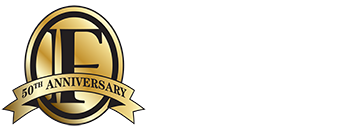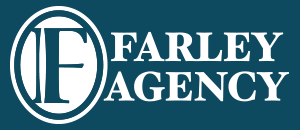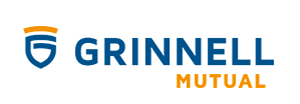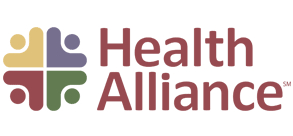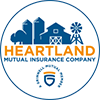Content to come.
All Frequently Asked Questions
Homeowners
What property and perils are excluded from most homeowner policies?
Most homeowner policies provide coverage that does not apply to animals, birds, fish, automobiles and business property; for loss or damage caused by flood, surface water, water which backs up through sewers or drains, earth movement, nuclear damage, war, etc.
Section II coverages (personal liability and medical payments) do not apply to the operation, ownership, use, etc., of any aircraft, automobile, recreational motor vehicle, water craft powered by more than 50 horsepower motor; bodily injury or physical damage caused by an intentional act of the insured.
It must be noted that these are a mere sample of property and perils not covered. A complete review of your policy is the only way to determine what property is covered and what perils are insured against. Also, there are specific limits of coverage on property insured under the homeowner’s policy such as money, securities, water craft, theft of jewelry, silverware, and/or guns.
What is replacement cost?
Replacement cost is a method for valuing the reimbursement of property on an insurance policy.
The most important concept to understand in regards to replacement cost is "new for old, like kind and quality." The insurance company is going to give you the amount of money (up to your policy limit) that it takes for the materials and labor to replace your home. In most cases, this is the preferred property valuation method.
What is actual cash value?
Actual Cash Value is a method for valuing property after an insurance loss. What many people do not realize about actual cash value is that depreciation is taken out of the payment from the insurance company.
If you have a kitchen fire and the cabinets in your kitchen are twenty years old. The company is going to pay you for twenty year cabinets. Not what it will cost to replace those cabinets today.
Most property owners prefer to insure their property at replacement cost instead of actual cash value.
How does actual cash value (ACV) affect a homeowners insurance claim?
Actual Cash Value is way of valuing a property insurance loss after a claim. The main concept that you need to understand with actual cash value is that in the event of a loss if your policy is actual cash value, depreciation will be taken out of your payment.
Meaning if you have 10 year old cabinets with a 20 year life and those cabinets cost $10,000 to replace. You will get a check from the insurance carrier for $5,000. (Very simplified for this example this is just informational for your understanding that is not the actual amount you are guaranteed to get).
Yes. In most cases, actual cash value policies cost less than Replacement Cost policies, but the penalty when you have a loss can be severe.
Recent rainstorms have flooded and damaged my basement. Is there any coverage under my homeowner's policy?
Flood coverage is generally excluded on the basic homeowners policy. However, some homeowners policies provide coverage for backup of sewers and drains that cause flooding in your basement. This coverage can be purchased for a nominal premium. You should check with your agent to see if this coverage is provided and how much it costs.
If, however, you live in a flood-prone area, you should consider – and may be required by your lending institution – to purchase a flood insurance policy. Your agent should be able to inform you about the Federal Flood Insurance Plan and the exclusions and limitations of coverage in this policy.
What is water back up and sump pump failure insurance?
Water back up and sump pump failure coverage is an endorsement to the homeowner insurance policy that provides coverage to property damaged by water that backs up into the home through pipes, drains, sewer, water-service, sump pump and any other type of fluid transfer system from the house.
It is important to understand the water back up and sump pump failure coverage is an endorsement to the homeowners insurance policy. This coverage Does Not come standard. You have to add the coverage and in most cases pay an additional premium, otherwise you do not have coverage for this type of loss
During a storm, a tree from my neighbor's yard fell and destroyed my fence. Does my homeowner's policy pay for the damage or does my neighbor's policy?
Generally, your own policy should cover the loss. Your insurance company may be able to recover the amount it pays you for the loss and your deductible from the homeowners insurance that your neighbor may have if the loss occurred as a result of your neighbor’s negligence.
Auto
What is the difference between comp and collision coverage?
Comp (a.k.a Comprehensive or Other Than Collision) and Collision are physical damage insurance coverages on a personal or business auto insurance policy.
Collision coverage provides reimbursement for damage to your vehicle after you’ve been in a car accident in which there is no fault or you are at-fault. Comp provides reimbursement for a set of named perils that include, fire, hit an animal, falling object, car get’s struck by lightning and more.
Comp will often be provided in conjunction with full glass coverage but is technically a separate part of the auto insurance policy.
Are there any specific time limits for an insurance company to pay for collision or comprehensive claims?
Some states have specific time limits for the settlement of claims. In general, insurance companies should pay all claims in a prompt and reasonable amount of time. However, what constitutes "prompt and reasonable" may vary from claim to claim.
Claims that require special or extended investigation may take longer to resolve. Inclement weather conditions often cause an increase in the number of claims filed and that can slow the process down as well.
May I keep my auto if I have a collision, limited collision or comprehensive claim and my insurance company declares it a total loss?
Your insurance company has the option to take title to your auto when it issues payment on your claim. The insurer is entitled to any salvage value your auto may have. You can, of course, negotiate with your company to purchase your auto for the agreed salvaged value.
Can the insurance company pay me less than Blue Book for my totaled vehicle?
Yes, the Blue Book is only a guide. The company is required to pay you what your vehicle was actually worth (as a used car) the moment before the crash . The adjuster will find out how much used cars like yours (same make, model, and year) are going for in your area . It's a good idea for you to independently research the value of your car too.
What should be included in the amount the company pays me for my totaled car?
The value of your vehicle. You should also verify how your state addresses sales tax, title & license fees for when you replace a totaled vehicle.
The adjuster recommended a specific body shop. Can I use a different shop?
You can have it repaired wherever you choose. But no matter what shop you choose, the adjuster will base your claim payment on market price for the repairs and pay the local average rates for parts & labor.
Who pays for the rental car while my car is in the body shop?
Liability Claim
When the claim is against the other driver's company , the other driver's company should pay your rental car cost for a reasonable length of repair time. If the car is totaled, many companies pay for your rental as a courtesy, but they are not required to do so — your right to a rental ends once a settlement has been offered.
Comprehensive/Collision Claim
When it's a claim against your own policy , your company will pay if you paid a premium to include rental reimbursement coverage in your policy. Most policies have a dollar limit for rental payments; your rental car rights are spelled out in your policy.
